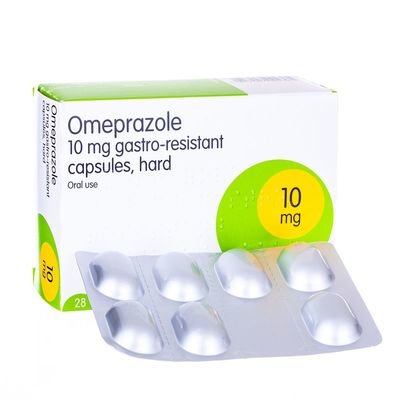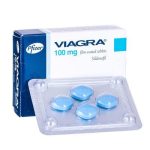Today, gastroesophageal reflux disease (GERD) affects roughly 20% of the UK population regularly. This digestive disorder occurs when your stomach acid runs back up through the food lining (oesophagus) to your mouth. The common symptoms of this digestive disease include heartburn, acid reflux, swallowing issue, and a feeling of food stuck in your food lining.
With a lot of people currently experiencing GERD in the country today, it’s important to understand what this digestive disease is and how to treat it effectively using the right acid reflux medication, such as Omeprazole tablets.
How exactly does GERD work?
GERD or gastroesophageal reflux disease is a digestive disorder. As earlier mentioned, this disorder surfaces when the acid-containing contents in your stomach backwashes into your oesophagus. Unfortunately, if this happens constantly, the flow back can irritate the lining of your oesophagus, making it to become inflamed.
GERD happens because your lower oesophagal sphincter allows the acid-containing contents to flow back up from your stomach. Usually, this lower oesophagal sphincter is supposed to seal properly as soon as food reaches your stomach. You’ll feel a sour taste whenever the flow back food content enters your mouth.
Acid reflux is normal and nearly everyone in the UK experiences it once in a while. However, if you experience this regularly (more than twice weekly for many weeks), you may be suffering from chronic acid reflux, also known as GERD. This is especially true if you already took the best acid reflux tablets and antacids and the symptoms remain the same or worsen.
In this case, you need to visit your doctor to find the best treatment option for your GERD symptoms. Your doctor will advise you on the best way to treat your GERD and avoid further complications.
Common GERD symptoms
There are a few ways to understand whether or not you’re suffering from chronic acid reflux. Do you regularly have heartburn and acid regurgitation? If yes, then this could be a warning sign that you have gastroesophageal reflux disease.
Studies reveal that certain people suffer from GERD without any heartburn cases. Instead of acid regurgitation and heartburn, these GERD sufferers only experience chest pain, swallowing difficulties, or morning hoarseness. Dry cough, unhealthy breathing, and a feeling of food stuck in your throat are other symptoms that people experience instead of heartburn.
What is heartburn & why do people experience it?
As you now know, heartburn is one of the symptoms of GERD. You have this symptom if you currently experience a burning discomfort or pain in your upper & mid-chest. You can also experience this burning discomfort in your throat and neck. This burning sensation is a result of the backwash of stomach acid up into the oesophagus, where irritation occurs.

Heartburn mostly occurs after eating, but many people can also experience it anytime. This disorder tends to worsen when a patient lies down in bed. As such, heartburn will prevent you from having a good sleep at night.
Online many illnesses out there, heartburn can be treated with over-the-counter tablets or medications. For more effective results, your doctor will have to prescribe you Omeprazole tablets to increase your chance of managing your heartburn the right way.
What happens if you think you have chronic acid reflux?
By getting familiar with the different acid reflux symptoms, you can easily identify whether or not you have gastroesophageal reflux disease.
But what exactly will happen if you have (or may have) GERD?
With GERD, you should expect the tissue lining your oesophagus to constantly get beaten by stomach acid. When this goes on for a long period, the pinning tissue will get affected.
Are you currently experiencing this issue? If yes, your healthcare practitioner is the best person to visit for help. To avoid any serious complications, your doctor will tell you exactly what you need to do to get better. In most cases, your doctor will prescribe you stronger acid reflux medications, such as Omeprazole. Surgery is also another effective treatment option in this case.
Here are the main causes of acid reflux
- The main cause of acid reflux is the weakening of the lower oesophagal sphincter (LES). It’s simple to understand; if your lower oesophagal sphincter works perfectly, it should seal completely after food passes through it into the stomach.
- However, when your LES becomes weak, it relaxes and affects the acid reflux After food enters your stomach, this valve will fail to seal properly. This allows your stomach contents to flow back up into the oesophagus, causing acid reflux.
Why does the lower oesophagal sphincter misbehave? Here are a few reasons below:
- No doubt, your LES is a high-pressure zone. However, when an excessive amount of pressure is applied to the abdomen, it may misbehave and fail to seal tightly. This additional pressure is why certain pregnant women experience heartburn almost every time.
- Your eating habits and food preferences can also cause acid reflux.
- The use of certain painkillers, antidepressants, and sedatives for high blood pressure and asthma treatment can also cause acid reflux. This mostly happens because of overdose or wrong use of these medicines.
- Having a hiatal hernia is another rare cause of acid reflux.
How common is chronic acid reflux?
GERD or chronic acid reflux is a very common digestive health condition in the United Kingdom today. To be precise, this digestive condition affects roughly 20% of the entire population in the country.
Gastrointestinal reflux disease doesn’t have any respect for anybody. It affects both young and old people. However, this digestive disease is most common in people over 40 years. That’s not all; this condition is also common among obese people, pregnant women, and smokers. You should also know that certain drugs can also cause acid reflux.
Heartburn or heart attack: what exactly do you have?
Heartburn and heart attack are two different health conditions. Heartburn leads to chest pain. In many cases, patients often confuse this chest pain with a heart attack.
Well, the good news is that heartburn has nothing in common with a heart attack. A heart attack occurs because of the restriction in the flow of blood to the heart muscle. Unlike heartburn, you won’t have any burning sensations with a heart attack. Instead, you may experience discomfort in your neck, jaw, and arms. Nausea, dizziness, too much weariness, anxiety, and shortness of breath, are common symptoms of a heart attack.
Is it possible for chronic acid reflux to induce asthma?
For now, there are no sufficient data to explain the connection between GERD and asthma. However, you need to understand that roughly 75% of asthma patients have GERD today. According to a few available studies, an asthma patient is twice as likely to have GERD compared to other people.
Certain asthma medications can worsen GERD symptoms. This is especially true if the asthma patient uses theophylline. If proper care is taken to treat your GERD, this can also help to relieve your asthma symptoms.
GERD may be the cause of your asthma if you have adult-onset asthma. This is also true if your asthma symptoms worse after exercising, lying down in bed, or consuming your food. Your doctor may also detect the cause of your asthma to be GERD if basic asthma therapies are ineffective to manage your symptoms.
Is GERD dangerous?
Gastrointestinal reflux disease is never life-threatening or dangerous in itself. However, if care is not taken by using the best medication for acid reflux UK at the early stage, GERD can always result in more complicated health conditions:
- Esophagitis, a disease that surfaces when your oesophagus lining becomes irritated and inflamed, can always lead to oesophagal ulcers and other conditions, such as bleeding, heartburn, swallowing issues, and chest pain.
- Long-term GERD condition can lead to Barrett’s oesophagus. Although this condition rarely occurs, studies reveal that roughly 10% of affected long-term GERD sufferers experience this issue.
- Oesophageal cancer: is available in two types. The one that affects the lower section of the oesophagus may be caused by Barrett’s oesophagus. The one that affects the upper part of the oesophagus is known as squamous cell carcinoma.
- Strictures are another complicated condition that could result from GERD that’s left untreated.
Food triggers to avoid GERD
Apart from using the best acid reflux medication, such as Omeprazole capsules, you can also control GERD symptoms by watching your diet and eating habits.
For the best results, you need to avoid foods that cause heartburn. You can do that by staying away from spicy, fried, and high-fat foods. Furthermore, ensure to avoid chocolate, onions, garlic, tomato sauces, alcoholic beverages, coffee, citrus-related fruits, and carbonated beverages.
You can visit your doctor to get advice on how to watch your diet and use the best stomach acid reflux tablets, such as Omeprazole.











